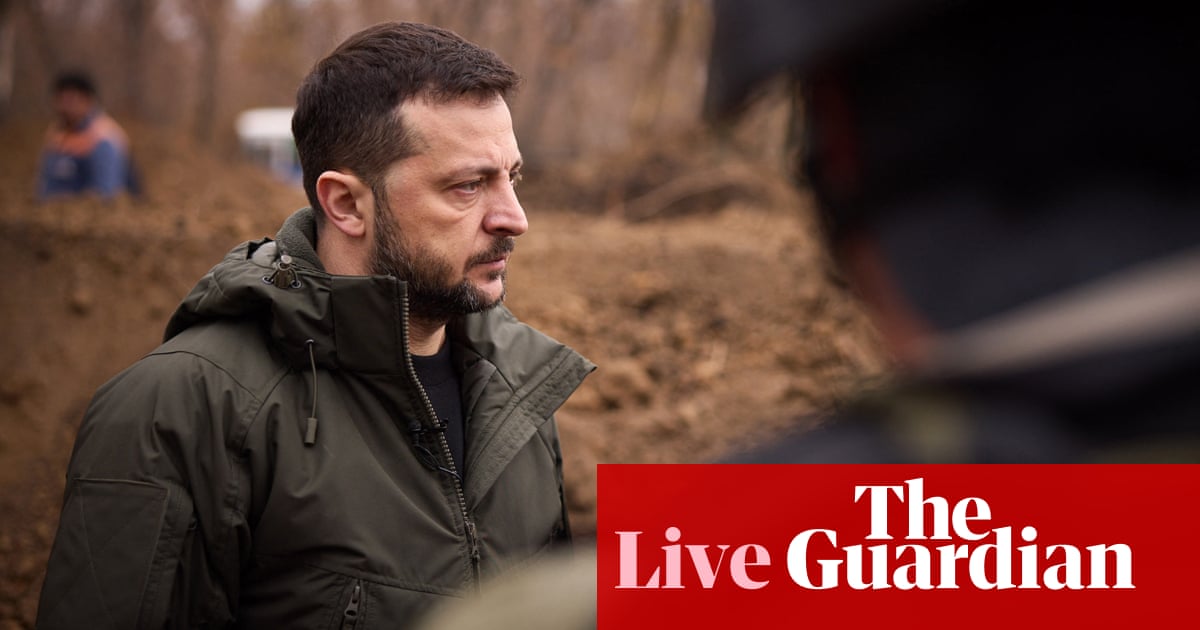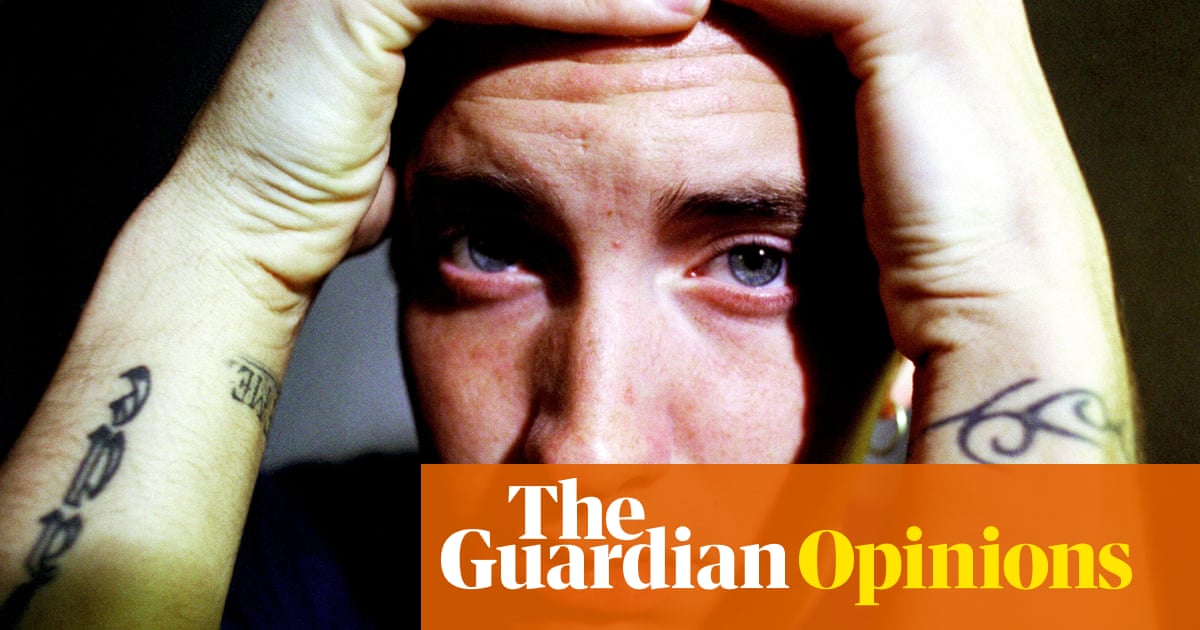Russia: use of western non-nuclear missiles by Ukraine against Russia could lead to nuclear response
Kremlin spokesperson Dmitry Peskov has said the use of western non-nuclear missiles by the Ukrainian armed forces against the Russian Federation under the new doctrine could lead to a nuclear response, after president Vladimir Putin approved an updated Russian nuclear doctrine on Tuesday.
Speaking at his regular daily press briefing, Tass reports Peskov said that the new nuclear doctrine should become the subject of deep analysis both in the country and abroad.
Peskov said that the Russian Federation considers the use of nuclear weapons to be an extreme measure, but that updating the doctrine was needed to bring the document into line with the current political situation.
Peskov said the âspecial operationâ â Moscowâs preferred term for its full-scale invasion of Ukraine â was being conducted in the context of a war unleashed by the west against the Russian Federation, and that the Russian military is closely monitoring the reports about plans to use longer-range US missiles in the Kursk region of Russia.
Key events
UK imposes new sanctions on Russia over forced deportation of Ukrainian children
The UK has announced ten new designations under its Russian sanctions regime.
In a statement, the government says it is targeting âthose supporting Vladimir Putinâs attempts to forcibly deport and indoctrinate Ukraineâs children and erase their Ukrainian cultural heritage.â
Foreign secretary David Lammy is quoted saying:
No child should ever be used as a pawn in war, yet President Putinâs targeting of Ukrainian children shows the depths he will go to in his mission to erase Ukraine and its people from the map.
As Ukraine reaches the grim milestone of 1000 days of bravely defending against Putinâs illegal invasion, the UKâs support is iron-clad. With our international partners, we stand with Ukraine to confront Russian aggression and fight for freedom, liberty and victory.
The UK government claims âmore than 19,500 Ukrainian children have been forcibly transferred or deportedâ and that âan estimated 6,000 Ukrainian children have been relocated to a network of re-education camps.â
In March last year the international criminal court issued arrest warrants for the Russian president, Vladimir Putin, and Russiaâs commissioner for childrenâs rights, Maria Alekseyevna Lvova-Belova, in relation to the forced deportation of children.
European troops could be needed for Ukraine peace says Estonia

Jennifer Rankin
Jennifer Rankin is the Guardianâs Brussels correspondent
European nations should be ready to send troops to Ukraine to secure any peace deal between Kyiv and Moscow orchestrated by Donald Trump, Estoniaâs foreign minister has said.
In an interview with the Financial Times, Margus Tsahkna said the best security guarantee for Ukraine was Nato membership, but if the US opposed Kyiv joining the military alliance, then Europe would have to put âboots on the groundâ.
He said:
If we are talking about real security guarantees, it means that there will be a just peace. Then we are talking about Nato membership. But without the US it is impossible. And then we are talking about any form [of guarantee] in the meaning of boots on the ground.
The minister also said it would be âreally, really, really complicatedâ for Europeans to provide security guarantees to Ukraine without US backing, not least because Nato could ultimately be dragged into any clash with Russian forces.
The FT reports the view of some analysts, who suggest a coalition of the willing to support Ukraine could include Poland and the UK-led Joint Expeditionary Force, a defence group that includes the Nordic and Baltic states and the Netherlands. These countries are meeting in Tallinn next month.
French president Emmanuel Macron has previously said European troops on the ground could not be ruled out and that Europe should not wait on the results of the US elections to decide on its future.
Local media reports that multiple explosions have been heard in Kherson.
Ukraineâs president Volodymyr Zelenskyy is expected to address the European parliament virtually later this morning. We will bring you the key lines when he speaks.
Russia: use of western non-nuclear missiles by Ukraine against Russia could lead to nuclear response
Kremlin spokesperson Dmitry Peskov has said the use of western non-nuclear missiles by the Ukrainian armed forces against the Russian Federation under the new doctrine could lead to a nuclear response, after president Vladimir Putin approved an updated Russian nuclear doctrine on Tuesday.
Speaking at his regular daily press briefing, Tass reports Peskov said that the new nuclear doctrine should become the subject of deep analysis both in the country and abroad.
Peskov said that the Russian Federation considers the use of nuclear weapons to be an extreme measure, but that updating the doctrine was needed to bring the document into line with the current political situation.
Peskov said the âspecial operationâ â Moscowâs preferred term for its full-scale invasion of Ukraine â was being conducted in the context of a war unleashed by the west against the Russian Federation, and that the Russian military is closely monitoring the reports about plans to use longer-range US missiles in the Kursk region of Russia.
Putin approves updated Russian nuclear doctrine
Russian President Vladimir Putin on Tuesday approved an updated nuclear doctrine, Reuters reports the document posted on the governmentâs website showed.
In a key section of the document, Russia has expanded the list of criteria that require a nuclear response to include âaggression by any non-nuclear state, but with the participation or support of a nuclear countryâ. Such actions, the doctrine says, will be considered a joint attack.
In another passage the document states:
In addition, a nuclear response from Russia is possible in the event of a critical threat to its sovereignty, even with conventional weapons, in the event of an attack on Belarus as a member of the Union State, [or] in the event of a massive launch of military aircraft, cruise missiles, drones, other aircraft and their crossing the Russian border.
Putin ordered changes to the nuclear doctrine in the weeks leading up to the US election.
In todayâs First Edition newsletter, Nimo Omer has spoken to the Guardianâs defence and security editor Dan Sabbagh about the reported decision by the US to allow Ukraine to use longer-range missiles to strike inside Russia.
He told her:
Each time these discussions about an individual weapon type are considered, freighted with great significance, the reality has been theyâve only made an incremental difference in the battlefield. From Ukraineâs perspective, it is better to have them than not, but ultimately, no single weapon type is decisive in a complex war like this.
Each of these weapons comes along months, maybe years, after Ukrainians asked for them. Itâs quite an agonising process. They are clearly military useful, they have a psychological and deterrent effect but in terms of an actual destructive effect, not so much.
Ukraineâs state emergency service now says that nine people have been killed by the Russian drone strike on Hlukhiv. Some media sources are reporting that people are still believed trapped under rubble.
Ukrainian media is reporting that overnight Ukraineâs air defence shot down 51 out of 87 drones aimed at the country by Russia.
Citing the air force, Suspilne writes that 30 drones evaded tracking.
The death toll from a Russian drone attack on the small town of Hlukhiv in Sumy region has risen to seven. One child is reported among the dead.
Posting pictures of rescue workers at the scene, Ukraineâs president Volodymyr Zelenskyy said âEvery new Russian strike only confirms Putinâs true intentions. He wants the war to continue, he is not interested in talking about peace.â
Denis Pushilin, the Russian-installed governor of Ukraineâs eastern Donetsk region, has reported on his official Telegram channel that two people have been injured in the occupied city of Horlivka.
In the post, he said âThe Ukrainian armed forces continue attacks on the energy infrastructure of Horlivka. As a result, the situation has become more complicated.â
He reported that 80,000 people were without power.
Overnight Ukraine claims its forces struck a logistics centre near the city of Karachev in Russiaâs Bryansk region.
Russiaâs ministry of defence claims to have shot down four Ukrainian âaircraft-typeâ drones over the Bryansk region on Tuesday morning.
The claims have not been independently verified.
Russian security services make arrests over car bomb killing of senior naval officer
Russian media reports that two arrests have been made after the death of navy officer Valery Trankovsky in Sevastopol. The senior officer was killed by a car bomb last week.
An official in Ukraineâs security services told the Ukrainian Pravda outlet last week that the agency had orchestrated the car bomb attack in the Russian-controlled port city that killed the chief of staff of the 41st Missile Brigade of the Russian navyâs Black Sea fleet, accusing Trankovsky of being âa war criminalâ who had ordered missile strikes from the Black Sea at civilian targets.
Tass reports today that a 38-year-old resident of Sevastopol and a 47-year-old resident of Yalta have been detained, with Russiaâs security service, the FSB, saying they have confessed. âThe defendants are cooperating with law enforcement agencies and giving confessions,â it quoted the agency saying.
One of those arrested was accused of conducting surveillance on the Russian officer, while the other is accused of making the improvised explosive device that killed him.
At least six killed, including a child, in Russian drone attack on Sumy region
At least six people were killed, including a child, in a Russian drone attack on Ukraineâs northeastern region of Sumy, regional officials said on Tuesday.
Reuters reports twelve people were injured in the drone attack on a residential dormitory in the small town of Hlukhiv, the military administration of the Sumy region, which borders Russia, said on the Telegram messaging app.
Moscow promises âpalpableâ response if US missiles used in Russia as Ukraine marks 1,000 days of war
Hello and welcome to the Guardianâs live coverage of the war in Ukraine.
Ukraine marks 1,000 days on Tuesday since Russiaâs full-scale invasion â with weary troops battling on numerous fronts, Kyiv besieged by frequent drone and missile strikes, and officials preparing for Donald Trumpâs return to the White House in January.
However, Joe Bidenâs decision to give the green light for long-range Atacms missiles to be used against targets deeper inside Russia is seen as something of a boost, potentially constraining Moscowâs options to launch attacks and supply the front.
âThe longer Ukraine can strike, the shorter the war will be,â Ukrainian foreign minister Andriy Sybiga said before a UN security council meeting to mark the 1,000-day milestone.
The shift in policy, however, may be reversed when Trump returns to the White House in January, and military experts cautioned that it would not be enough on its own to change the course of the war.
Russia accused Biden of fuelling tensions with the move, and promised an âappropriate and palpableâ response if Ukraine attacked Russia with American long-range missiles.
In other headlines:
-
At least six people have been killed by a Russian drone strike in Sumy region. A child is reported to be among the victims.
-
Russian security services have made two arrests after last weekâs car bomb killing of a senior naval officer. Valery Trankovsky was killed in the Russian-occupied port city of Sevastopol.
-
Ukrainian president, Volodymyr Zelenskyy, visited the eastern frontline towns of Pokrovsk and Kupiansk on Monday. âWe are holding our positions,â Zelenskyy said in his nightly video address.
-
North Korean dictator Kim Jong-un met on Monday with Russiaâs natural resources minister in Pyongyang, state media reported, as visiting delegations from Moscow highlighted deepening ties.
-
UN undersecretary general for political affairs Rosemary DiCarlo denounced the rise in civilian casualties in Russiaâs attack on Ukraine over the weekend, which involved 120 missiles and 90 drones, and caused significant damage to Ukraineâs power grid. âThe targeted devastation of Ukraineâs energy infrastructure may make the coming winter the harshest since the start of the war,â she warned.
-
Britain is expected to clear Storm Shadow missiles for use by Ukraine on targets inside Russia, the Guardian reports, now that Joe Biden has agreed to do the same for the American long-range Atacms missiles.
-
The German tabloid Bild has reported on what it calls a âtop secretâ delivery to Ukraine of 4,000 strike drones, developed by the German artificial intelligence firm Helsing.
-
The Kremlin rejected a reported peace proposal from the Turkish president, Recep Tayyip ErdoÄan, to be put forward at the G20 summit in Brazil, to freeze hostilities at the current positions of both parties.
-
G20 leaders meeting in Rio de Janeiro on Monday said in a joint statement that they âwelcome all relevant and constructive initiatives that support a comprehensive, just, and durable peaceâ in Ukraine.



